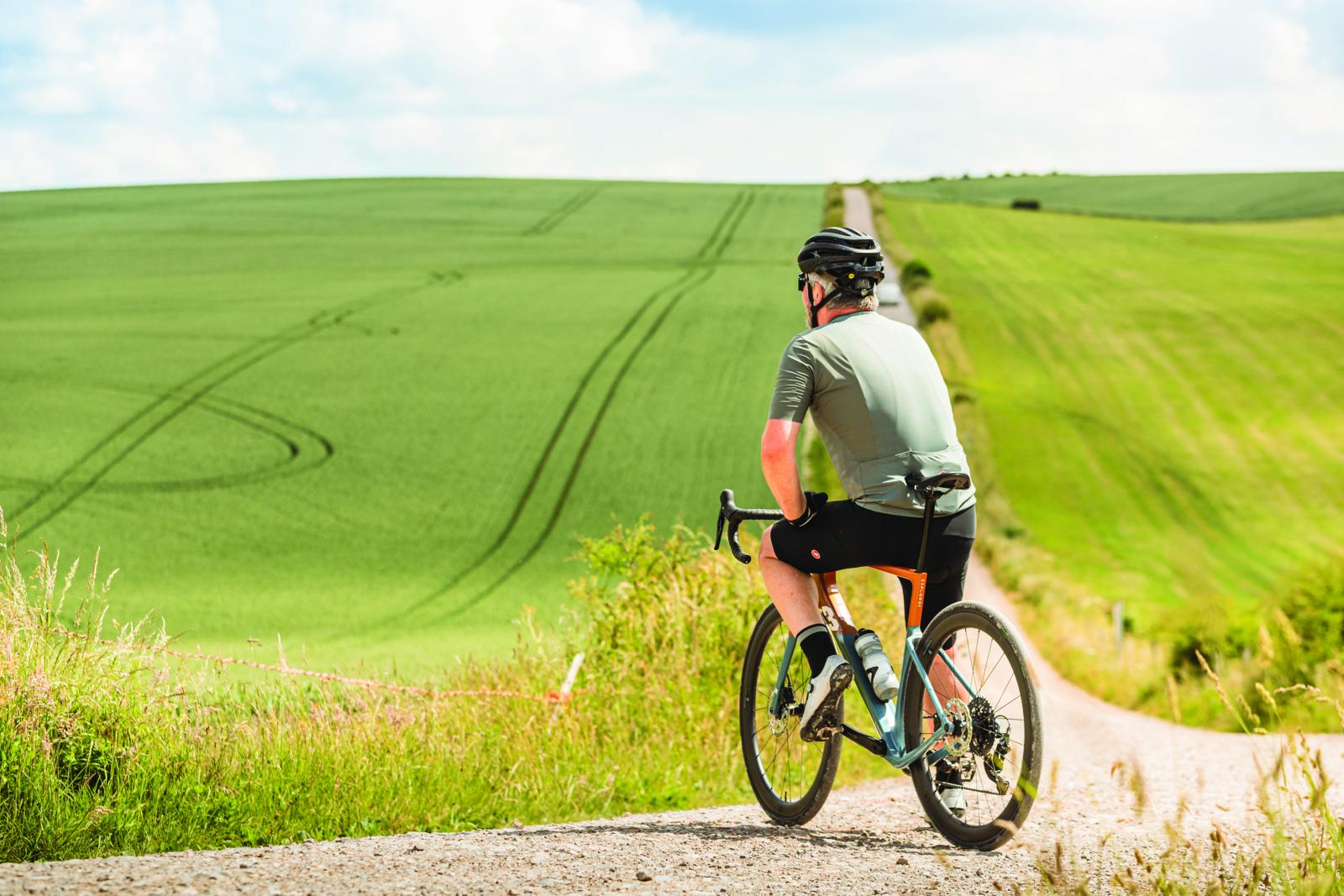You’d expect a bike named after a killer whale to exhibit some attitude and aggression — a bit of bite. And this bike does. Though unlike the six-ton marine mammal, the two-wheeled Orca is light, fast and an exceptional climber, so it’s probably about time to leave that analogy behind…
The Orca is Spanish outfit Orbea’s out-and-out race-ready machine, and not one for dawdling through country lanes in spring. The sub-kilo frame’s angular design impresses, and there’s some great symmetry between the slim seatstays and the fork, both of which kink outwards as they reach the dropouts.
Its sloping top tube, which flattens towards the head tube junction provides plenty of standover, and the main frame’s smaller triangle is stiffer too.
The race-standard 73-degree head angle is paired with a 73.2-degree seat angle that’s as close to parallel as makes no difference, which encourages fast riding while offering a position that’s just about high enough for comfort over longer rides.
What really impresses me about the M20 is the character of its ride. It feels light and swift as any good race bike should, and it is genuinely up there with Cannondale’s Evo, Specialized’s Tarmac and Giant’s latest TCR when it comes to suppleness over poorer roads.
Yes, it’s road-bike stiff, and thus firm riding, but it combines this with good levels of cushioning, and that’s with 23mm tyres.

The groupset is de rigueur for a two-and-a-half grand road bike, with Shimano Ultegra — in its most versatile, sportive-friendly version with a 50/34 chainset and 11-28 cassette — taking centre stage. You’ve heard it before but the drivetrain is stiff and efficient, the shifting faultless, the braking powerful and controlled.
FSA’s cockpit and the Prologo Scratch 2 saddle are also par for the course at this price, though the Orca’s handbuilt Vision Team 35 wheels are seen much less often as original equipment. The wide 18.9mm internal width of the 35mm-deep aero-section rims is very welcome, my skinny Vittoria Rubino Pro tyres stretching out to a shade over 25mm when fitted.
The wheels are well built, and they feel surprisingly supple — not flexible, but not as harsh as all-alloy wheels can feel. And even though these are a middleweight c1,800g pairing, they don’t hold the Orca back on the hills, and contribute to the front end’s solid, planted feel, which makes them convincing descenders too.

The base price for the M20 Pro is £2,499 / $2,999 / AU$4,599, but I went for Orbea’s MyO — ‘My Orbea’ — option, which allows you to change some kit, including going for different chainring and cassette options. This is all done online with the finished, customised bike delivered to your local Orbea dealer.
Most notably you can choose from six different wheelsets, from Mavic, Fulcrum and Vision, topping out with Fulcrum’s Racing Quattro Carbon clinchers for an extra £689. I certainly wish I’d have gone for the 25mm tyres, which would have added plushness.
And should you fancy yourself a bit of a wiz with colours you can design your own paint scheme. I chose this bike’s bold matt orange and silver and was very happy with it (well, I would say that, wouldn’t I?). You could even go the whole hog and have your name emblazoned on the frame. I didn’t.
So, whether you want to basque in glory or have a whale of a time, this Orca really is a killer…



